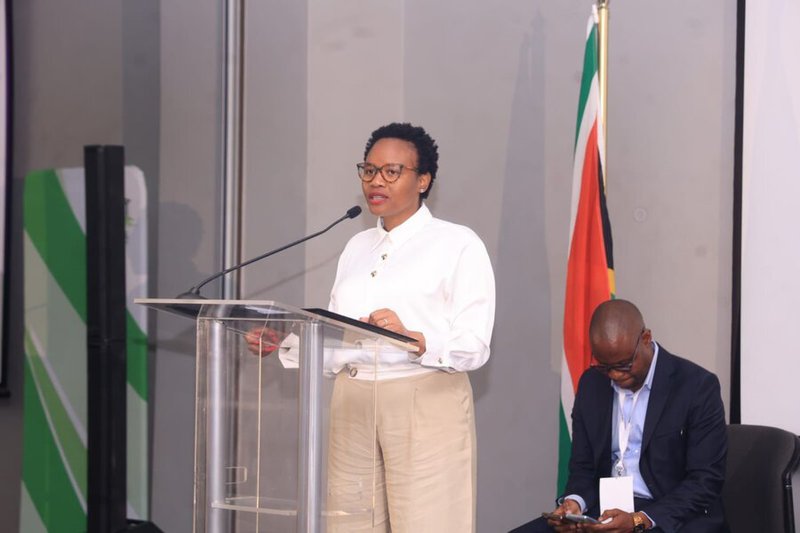By Johnathan Paoli
The City of Tshwane has launched an ambitious plan to reposition South Africa’s capital as a hub for investment, innovation, and job creation, with executive mayor Nasiphi Moya declaring that “Tshwane is open for business.”
Speaking at the metro’s inaugural Investment Summit in Menlyn on Wednesday, Moya outlined a bold economic vision under the theme, Tshwane Rising.
The mayor set immediate and long-term targets aimed at unlocking the city’s potential, reviving dormant assets, and restoring confidence in municipal governance.
“Our bold targets are to grow the local economy at an average of 3.9% by 2029, attract between R17 billion and R26 billion in investment, and create at least 80,000 new jobs,” Moya said.
“Taken together, these enablers show that Tshwane is serious about creating the right environment for investment. The assets are ready, the systems are improving, and the incentives are in place. What is needed now is partnership.”
The summit exceeded expectations, with more than R16 billion in new investment pledges secured—three times the R5 billion benchmark the City had set for 2025.
The breakthrough was welcomed as a show of investor confidence in Tshwane’s future.
Councillor Sarah Mabotsa of the GOOD party, who oversees Economic Development and Spatial Planning, praised the outcome.
“These pledges are more than financial commitments—they represent new opportunities for economic growth, innovation, and improved infrastructure. They highlight the belief that Tshwane has the potential to be a leading center of development, not only in South Africa but across the region,” she said.
Central to the City’s Economic Revitalisation Strategy is the unlocking of underutilised strategic assets.
These included Wonderboom National Airport, earmarked for development into a logistics hub to serve regional industries; the Tshwane Events Centre (Showgrounds), positioned as a catalyst for business tourism and large-scale events; the Tshwane Fresh Produce Market, with a turnaround plan to strengthen the agro-processing value chain; Pretoria West and Rooiwal Power Stations, targeted for waste-to-energy initiatives to enhance energy security; and city resorts, heritage sites, and land parcels, to be repurposed for student housing, office parks, and affordable housing.
“These reforms are about building predictability, ensuring policy certainty, and giving investors assurance that Tshwane is open for business,” Moya said.
The mayor unveiled a suite of financial incentives and regulatory reforms designed to attract long-term projects. These include rental reprieves of up to 18 months and property rates holidays of up to 36 months.
Institutional reforms are also being rolled out, including a reconfigured Strategic Investment Committee (STRIC) to facilitate partnerships; a new Applications Processing System (NAPS) to speed up land use and building approvals; and a VIP Business Line, giving direct access to decision-makers for Tshwane’s top 200 companies.
Moya underscored the importance of reliable infrastructure in building investor confidence.
Four priority projects have been identified namely Rooiwal Power Station, with plans to restore capacity and contribute 300 MW to the grid through private partnerships; Pyramid Substation, successfully rebuilt after a fire, stabilising power supply in Region 2 and enabling northern corridor expansion; Rooiwal Waste Water Treatment Works, undergoing a multi-billion-rand refurbishment to resolve Hammanskraal’s water crisis and protect the Apies River; and the solar farming projects on identified land parcels to diversify Tshwane’s energy supply.
The summit brought together local and international investors, government officials, and representatives from the private sector.
Gauteng Finance and Economic Development MEC Lebogang Maile lauded the City’s efforts, describing the initiative as “a critical step in aligning municipal development with provincial and national growth priorities.”
Moya closed the summit with a message of hope, insisting that the metro’s coalition government is confident the summit has laid the foundation for a new era of inclusive growth and investment in the capital.
INSIDE METROS

